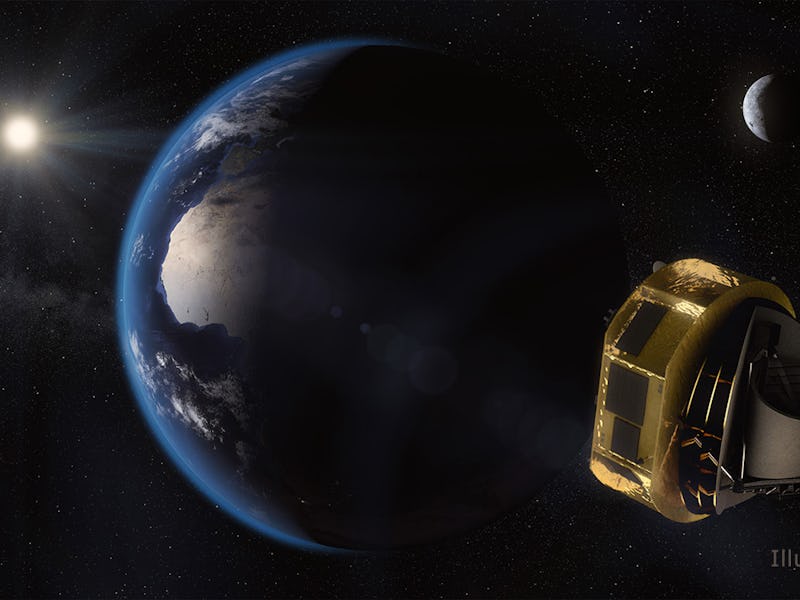NASA is zooming in on exoplanets to see what their atmosphere is like
ARIEL is the first spacecraft fully focused on exoplanet atmospheres. With a crucial instrument, NASA hopes to collect invaluable data.

NASA is taking a closer look at planets outside of the solar system, also known as exoplanets. The research will initially focus on hot planets, aiming to understand what makes up their atmosphere.
“The more information we have about exoplanets, the closer we get to understanding the origins of our solar system, and advancing our search for Earth-like planets elsewhere,” Thomas Zurbuchen, associate administrator for NASA’s Science Mission Directorate in Washington, said in a statement.
On November 8th, NASA announced that it was set to contribute an instrument to the European Space Agency’s Atmospheric Remote-sensing Infrared Exoplanet Large-survey mission, known as ARIEL. The instrument is called the Contribution to ARIEL Spectroscopy of Exoplanets, or CASE. The pair are expected to launch together in 2028.
The research could help scientists understand more about the exoplanets orbiting stars outside of our solar system. The agency’s exoplanet archive lists 4,093 confirmed planets spotted by systems like TESS, which has identified a further 1,361 candidates for potential inclusion. In total, NASA has a further 4,690 candidate discoveries that could be exoplanets.
Some of these planets could even theoretically hold life. Planets in the Goldilocks zone, so called because they sit just far away from their star to host liquid water, could potentially host extraterrestrial organisms. Unfortunately, research in June suggested that this zone could be much thinner for complex organisms doe to toxic gases in the atmosphere.
With the new CASE system, researchers could develop a better understanding of the atmospheres surrounding these exoplanets.
Artist impression of a gas giant forming around the star HD 100546.
NASA’s exoplanet tool: how it could lift the lid on outer worlds
Systems like TESS have found planets by looking at stars, measuring their changes in light and using that to understand whether a planet is orbiting the star. CASE takes this a step further, inspecting those planets to understand what makes them tick.
CASE will watch light from stars as the planet passes between the star and itself and then monitor the changes. Simultaneously, CASE will observe light reflected by a planet as it orbits through to the other side, so the star is in between the planet and the system. This should give researchers an idea of the atmosphere’s composition and temperature.
Although telescopes can help with this challenge, their use is limited. That’s because they need to focus on a multitude of projects, meaning they can’t devote all their time to exoplanets. CASE is the first such system devoted to exoplanets full time. Being first means more data, which should help scientists identify trends and tweak their methods further.
The project will focus on planets hotter than 600 degrees Fahrenheit, which are likely to have shorter orbital periods and offer more chances to observe transits. It uses two detectors that can collect light at both near-infrared and visible sections of the spectrum. CASE will pair with an infrared spectrometer on ARIEL that can handle the other wavelengths.
The pair will travel around one million miles away from Earth to Lagrange Point 2. This is the same point as NASA’s James Webb Space Telescope, due for launch in 2021, and should offer a stable position in space. The Webb will complement ARIEL’s work by studying a subsection of planets in great detail.
The L2 point that will hold the telescope.
With extra data from ARIEL, researchers will take a step closer to understanding the planets outside of our solar system.
“This is an exciting time for exoplanet science as we look toward the next generation of space telescopes and instruments,” Paul Hertz, director of the astrophysics division at NASA Headquarters, Washington, said in a statement.